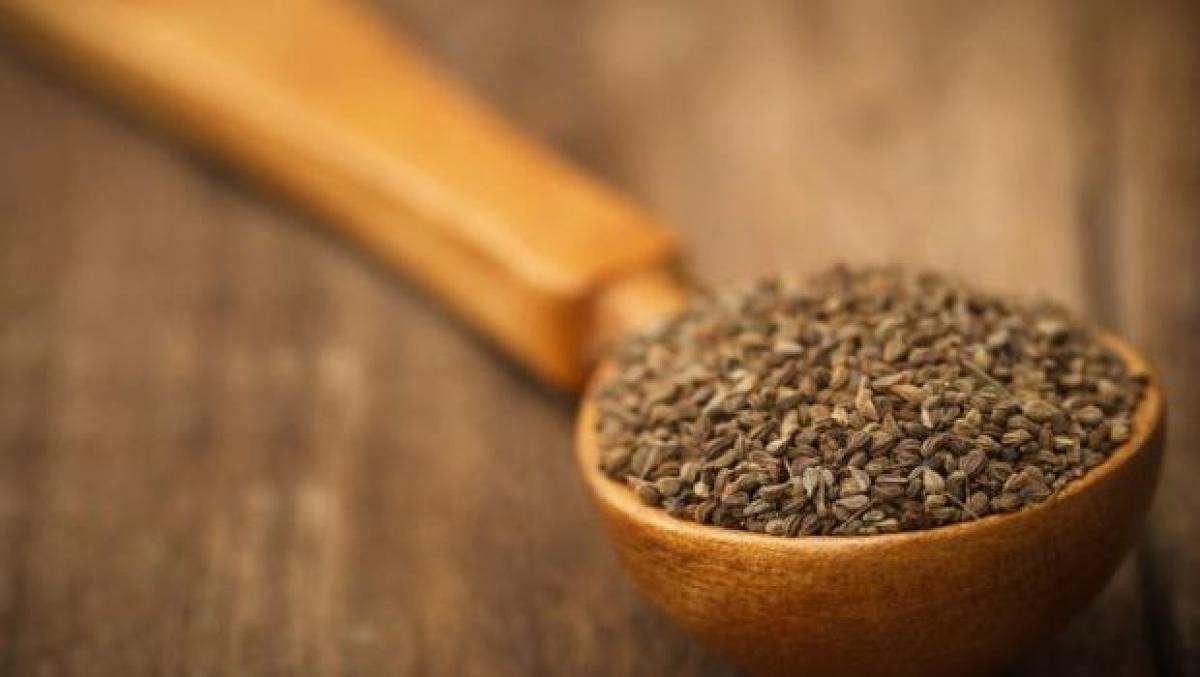
Ajwain oil is known as ajowan, ajowan caraway, bishop’s weed and carom seed oil. Its botanical name is Trachyspermum Ammi and this is an annual herb related to the Apiaceae family. This oil is mostly used for aromatherapy and therapeutic purposes. This strength of aroma is strong.
Ajowan Oil is steam distilled from the fruits (= seeds) or, occasionally, from the whole overground plant of Ptychotis Ajowan, also known as Carum Ajowan or Carum Copticum. This herb is cultivated in India, in the Seychelle Islands and in the West Indies (Montserrat).
Ajowan Oil is a yellow-orange to pale brownish or red-brown 1iquid of a pungent, herbaceousspicy and medicinal odor, reminiscent of red Thyme. However, unlike the rich odor of red thyme, Ajowan Oil presents a sharper, more cymene-like topnote and very little herbaceousmellow body. The fresh, almost green-cuminic topnote is characteristic of Ajowan Oil. Its flavor is somewhat sweeter than that of thyme, sharp and biting at high concentration, sweet.
Ajwain herb has been in use since centuries in several cultures for its aromatic and healing properties. In Ayurveda especially, ajwain is known for stimulating digestion and increasing appetite. It is recommended to help in reducing stomach discomfort and pain associated with gas and helps in providing relief from menstrual cramps.
Apperance:- Colorless to pale yellow clear liquid (est)
Odor:- Herbal Thyme Phenolic Medicinal Spicy
Specific Gravity:- 0.89000 - 0.98000.
Refractive Index:- 1.4830 - 1.5150 @ 20A deg C.
Optical Rotation:- +0 to +5 Deg.
Solubility:- water, 437.4 mg/L @ 25 C (est)
Extraction:- Ajwain oil is extracted from the crushed seeds by the method of Steam.
Composition:- The main constituents of the ajwain oil are thymol, gamma-terpinene, p-cymene, and beta-pinene. Alpha-pinene, alpha-thujene, beta-myrcene, carvacrol, limonene, and terpinene-4-ol. There are variations in the composition of ajwain oils depending upon the region where it is cultivated. For instance, ajwain oil collected from Southern India is rich in thymol. The principal constituents which are responsible for typical flavour of ajwain seed essential oil are thymol and carvacrol.
Uses & Benefits:-
Suggested use level is 2,0 to 3.0 mg~<, but may go higher in products such as meat sauces, pickles, use in soap perfumes, detergents, air-fresheners, etc.
Safety Precautions:-
Pregnant women, lactating mothers and children should use ajwain oil under the directions of a qualified medical practitioner. If you suffer from liver disorders or hyperacidity, avoid consumption of ajwain.
Therapeutic Properties:-